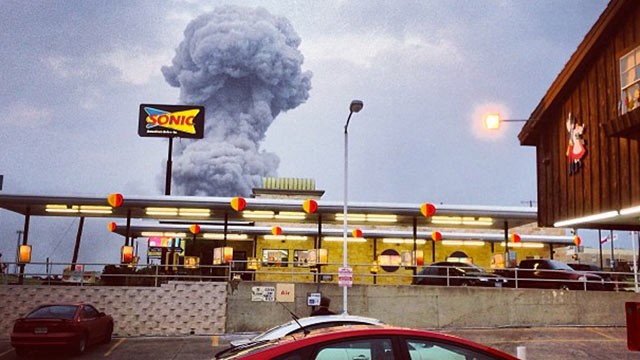The trench is dug within our hearts
And mothers, children, brothers, sisters
Torn apart
Sunday, Bloody
Sunday
Sunday, Bloody
Sunday
How long...
How long must we
sing this song?
How long, how
long...
~U2, Sunday,Bloody Sunday
We all know what
it feels like to be homesick. The many months in a foreign land, the unfamiliar
sounds of a different country. After the hours on the road, you drag yourself indoors, ready for
the weariness and discomfort to cease, ready to embrace that unconditional
lover: the couch.
But sometimes, there
are problems that have no solution. Ever had a dream in your head? Perfect and
untouched, the idea for a poem, or a book, or a piece of art? But when you take
up the pen, the words cannot describe it. You know exactly what you’re talking
about, but everything you try feels wrong, a futile attempt to describe a
greater truth. You throw language at an object, but nothing captures the
essence of it. The painting is just a scrawled crayon glimpse of an
uncapturable vision. Sometimes, we feel a hunger that nothing satisfies.
Everyone feels
it. When we are shocked by the passage of time (it “flies”), astounded by darkness,
surprised by the reality of evil. There is a hunger that everyone knows, a
sense that this world is not our home. We all feel a deep cosmic homesickness
that Earth cannot decrease. What is it called? Homesickness feels too banal; longing
could apply to other things, and feels too sad; it is too beautiful for melancholy. C.S. Lewis believed that the
English are missing such a word for a universal feeling, but he resorted to the
German word sehnsucht.
What does it
mean? Lewis’s description:
That unnameable something, desire for which
pierces us like a rapier at the smell of bonfire, the sound of wild ducks
flying overhead, the title of The Well at the World’s End, the opening lines of
“Kubla Khan,” the morning cobwebs in late summer, or the noise of falling
waves.
Sehnsucht is a
universal ailment, and there is no cure this side of death or the Second
Coming. What then, shall we do? At times, as I have written earlier, we can glory in the fact that,
despite the world’s brokenness, “sometimes when you walk outside, the air is
full of song here.”

But at others, no
amount of beauty or blue skies, no amount of gratitude or thankfulness can
cover the gaping wound of the Fall. This week, I was bombarded by images of
pain. The severed heads and feet of children aborted by Kermit Gosnell. The
tears and screams during the Boston bombing. The cries of a little girl,
overwhelmed in the smoke of the explosion in Texas. To top it off, the call
that a dear friend has a brain tumor.
What then, shall
we do? For those directly affected, there must be a time of grief, a time of simple,
excruciating hurting that will not pass quickly. But for the rest of us, we must find a way of expressing
our questions, the darker side of sehnsucht. We can feel of the echoes of Eden
in the beauty of his world, but what of the ugliness of Eden’s fallout? I
suspect that for many, the answer is varied. My answer has always rested in
song or story. Song, in particular, allows me to process my emotions and
feelings, to cry questions to the sky. One of the psalmists’ most frequent phrase
was “How long?” These psalms were called laments.
We do not often
hear laments. They are considered antiquated, having passed out of use with Old
English. But if the Word of God is always relevant, surely this portion is
immensely important, a way to express the pain of sehnsucht. I am often deeply
moved by tales of evil, and I have always found the greatest comfort in songs
that remind me of ultimate renewal, and those that long for it. When the rain
comes, I turn on Andrew Peterson’s The Reckoning:
How long? How
long? How long until this curtain is lifted?
How long? How
long is this the song that we sing?How long until the Reckoning?
And I know, I
know, I know that I don’t know what I’m asking,
But I long, I
long, to look You full in the face
I am ready for
the Reckoning.
These songs
cannot heal the pain, cannot solve the sehnsucht, but they can, at the very
least, express it, and remind us of the promise of the Reckoning. Their hope,
amid darkness, is itself worship. How do we respond to the brokenness of the
world? Worship. Lament. Hope.
Well, the Man of
Sorrows walked the shores of Galilee,
And His eyes were
cast with joy towards the crystal sea,
Well, the shadows
will be gone and all these bitter tears,
And my heart will
hang on that until the dawn appears.
O, how long? O! How
long?
~Matthew Perryman Jones, Until the Dawn Appears
Longish

No comments:
Post a Comment
WARNING: Blogger sometimes eats comments - copy before you post.